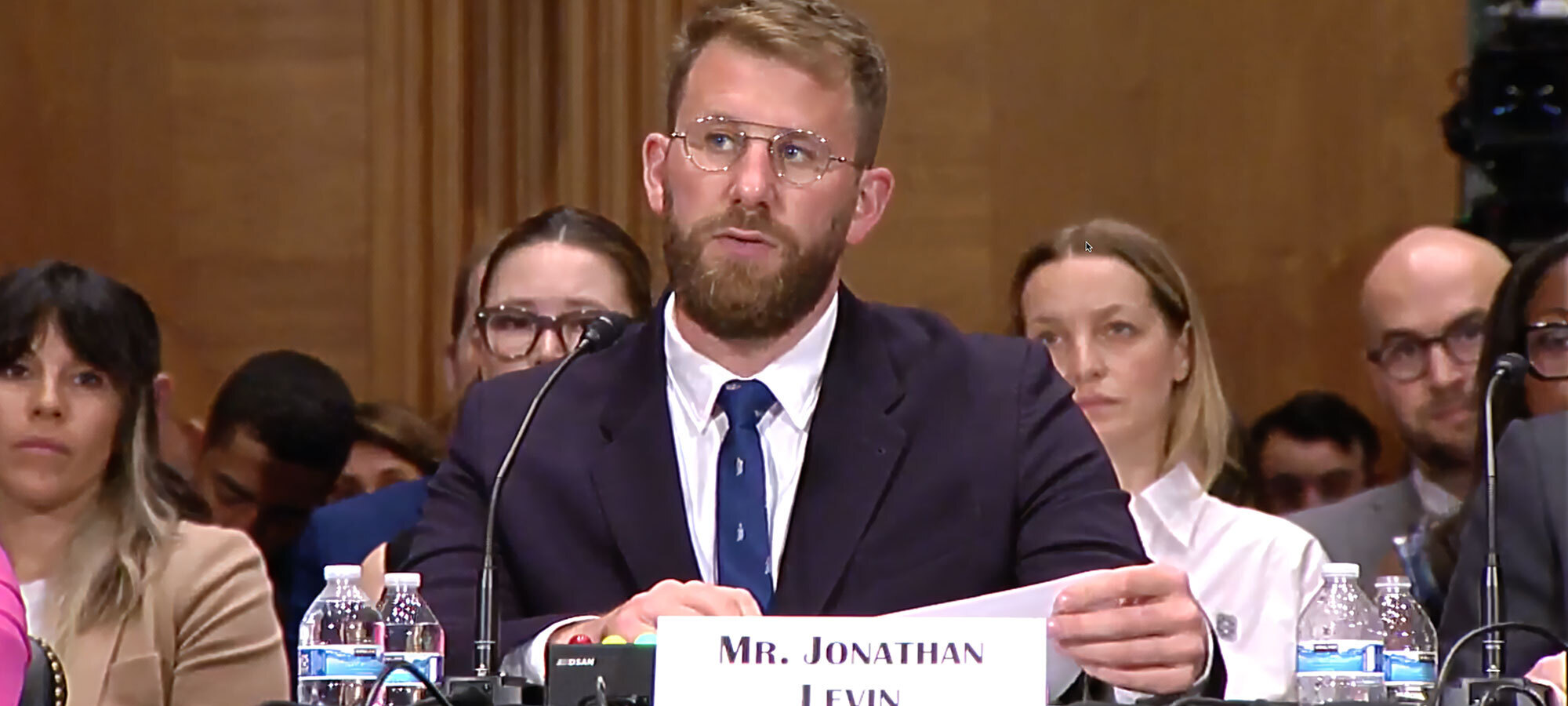Today, Chainalysis Co-Founder and CEO Jonathan Levin joined a panel of industry leaders and policymakers on Capitol Hill to testify at a pivotal Senate hearing on the landmark efforts to bring clarity and structure to digital asset regulation in the U.S. The discussion reflected a growing consensus: crypto is here to stay, but the rules that govern it need a serious upgrade.
Here are five key takeaways from the hearing:
1. Blockchain isn’t lawless—it’s traceable
Senator Tim Scott opened by declaring that blockchain technology is “here to stay,” echoing Levin’s core message: crypto is not a black box. Less than 1% of crypto transactions are linked to illicit activity—on par with or better than traditional finance. Public blockchains don’t obscure activity – they reveal it. Levin emphasized how Chainalysis tools help over 350 public agencies trace and recover illicit funds, including $12.4 billion in criminal proceeds seized to date.
2. Digital assets demand a modern compliance framework
Levin urged lawmakers to rethink how we oversee financial activity in the age of decentralized systems. Instead of forcing crypto into outdated boxes, he proposed a new model for oversight—one that leverages blockchain’s transparency, empowers state and local governments with modern tools, and gives regulators the ability to adapt as the technology evolves. As he put it: “With the right tools, the public ledger becomes a powerful instrument to protect consumers.”
3. State and local agencies need more resources
Senator Cortez Masto pressed Levin on the operational challenges law enforcement faces. His response: most local agencies aren’t yet equipped to investigate crypto crime. But AI-powered tools and training can change that. Chainalysis is already helping jurisdictions large and small track everything from pig butchering scams to terrorist financing. Investing in these capabilities isn’t just smart—it’s essential.
4. Clarity beats carveouts
A consistent theme across the hearing was the need for a clear, principles-based approach—not rigid classifications that could stifle innovation. Jonathan Levin (Chainalysis), Summer Mersinger (former CFTC Chair), and Brad Garlinghouse (CEO, Ripple) all emphasized that digital assets don’t fit neatly into existing frameworks and shouldn’t be forced into them.
Timothy Massad, former CFTC Chair, echoed that view from a regulator’s perspective. He argued that crypto is a technology, not an asset class, and called for flexible, coordinated oversight between the SEC and CFTC, enabled by legislation but developed through adaptive rulemaking. In a rapidly evolving ecosystem, “do no harm” to investor protections doesn’t mean doing nothing—it means designing a regulatory model that can keep up.
5. Public-private collaboration is the way forward
Levin closed by underscoring the importance of public-private partnerships in tackling crypto crime. Whether it’s child exploitation networks, ransomware gangs, or terrorist financing, Chainalysis has worked hand-in-hand with agencies around the world to trace, disrupt, and dismantle illicit networks. With smarter regulation and the right tools, the U.S. can become not just a participant—but a leader—in the future of digital finance.
In conclusion
This hearing revealed sharp divides—and surprising alignments—across the aisle. But if there was one shared sentiment, it’s this: crypto is no longer fringe. The challenge now is building a regulatory system that’s as smart, resilient, and forward-looking as the technology itself. At Chainalysis, we’re ready to help lead the way.
Are you interested in hearing more from a member of our team? Click here to request a demo.
This website contains links to third-party sites that are not under the control of Chainalysis, Inc. or its affiliates (collectively “Chainalysis”). Access to such information does not imply association with, endorsement of, approval of, or recommendation by Chainalysis of the site or its operators, and Chainalysis is not responsible for the products, services, or other content hosted therein.
This material is for informational purposes only, and is not intended to provide legal, tax, financial, or investment advice. Recipients should consult their own advisors before making these types of decisions. Chainalysis has no responsibility or liability for any decision made or any other acts or omissions in connection with Recipient’s use of this material.
Chainalysis does not guarantee or warrant the accuracy, completeness, timeliness, suitability or validity of the information in this report and will not be responsible for any claim attributable to errors, omissions, or other inaccuracies of any part of such material.
